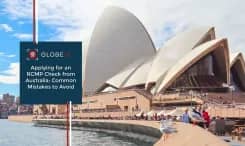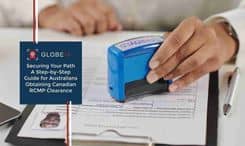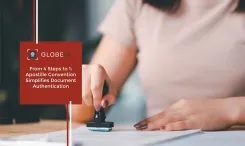State Apostille Services from USA
Apostille Services in California
Apostille Services in Texas
Apostille Services in Florida
Apostille Services in Washington
Services from Canada
Services from United Kingdom
Services from New Zealand
Are you planning to move abroad? But are your documents all authenticated and legalized? Whether you are moving abroad for business or further studies, you must ensure that all your documents are legalized for acceptance by foreign jurisdictions. This guide shows how to authenticate and legalize your documents, making the process easy and efficient.
What is Authentication and Legalization?
To verify the validity of any document, you need authentication from the USA government offices, such as the US Department of State or Secretary of State, to ensure your documents are genuine.
Similarly, legalized documents certify that an authenticated document is valid for use in a foreign country. For countries not a part of the Hague Convention, consular legalization is required from the embassy or consulate of the destination country.
Steps for Authentication
To authenticate your documents, follow these two essential steps:
Obtain Notarization:
Find a Notary Public: Locate a notary public near you. Notaries are authorized officials who can verify signatures and certify documents. Sign your document in the presence of the notary, if required. This step is crucial, as the notary will verify your identity.Notary's Verification: The notary will affix their seal or stamp on the document, confirming that the signature is authentic and the document is genuine.Government Authentication:
Submit to Relevant Authority: After notarization, take your document to the appropriate government authority for authentication. This is commonly the office of the Secretary of State or hire the services of an agency that takes care of your document verification.Verification by Authorities: The government authority will check the notary's credentials and affix their seal or stamp to the document.Receive Authenticated Document: Once the verification is complete, you will receive your authenticated document, which is now ready for the next step.The state-verified document or a federal document will require authentication from the US Department of state to proceed with the next step of legalization.
Steps for Legalization
Once your document is authenticated, you can proceed with legalization, which varies based on whether the destination country is a member of the Hague Apostille Convention.

Tips for Getting Your Documents Ready for Use in Various Countries
Research Requirements: All countries have different document authentication and legalization requirements. You need to research the specific regulations of the destination country.
Prepare Multiple Copies: You should have multiple copies of your documents.Allow Time for Processing: As authentication and legalization take time, you should start the process as soon as possible.Check for Additional Requirements: Some countries may have additional requirements, such as translations or specific forms to fill out. Ensure you have all necessary documentation in order.It can be daunting to move around and have your documents in place, get them notarized if required, look for translation services if your documents are not in the desired language, etc. If you care about your time and efforts, you can look for a reliable agency that can take care of all your documents and provide you with a document ready to use in your destination country.Conclusion
Authenticating and legalizing documents is vital for ensuring their acceptance in foreign countries. You can navigate international requirements effectively by meticulously following the steps of notarization, government authentication, and Apostille or consular legalization. Connecting with a reliable Legalization service makes your documents valid across the globe easier and hassle-free. Understanding these processes saves time and helps avoid potential complications in your international endeavors. With the proper preparation, you can ensure that your documents are recognized and valid wherever needed. Globeia is a trusted authentication and legalization service provider in Canada that helps you verify your vital documents and prepare them for the world.









Global Services
State Services
